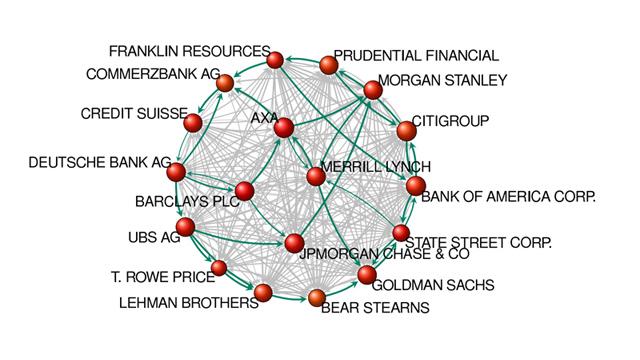
We live in an interdependent world, where nations are increasingly eclipsed in size and wealth by the major banks and transnational corporations which have come to dominate the global economy.
Royal Dutch Shell has more money than all but the top 22 countries on earth. Supra-national and international institutions like the European Central Bank and IMF punish the populations of Greece, Spain, Portugal, Italy and Ireland into poverty and conditions of exploitation. Banks and corporations make record profits while poverty soars, debts increase and hunger spreads. Half the world’s population lives on less than $3 per day, over 1 billion people live in slums, and a global land grab coupled with a six-year-long global food crisis is pushing populations off their land and into deeper poverty and extreme hunger.
Western governments impose “austerity” at home while waging wars and supporting dictatorships abroad. Across the Arab world populations have been in revolt, labor unrest in South Africa reveals the persistence of economic apartheid, and popular resistance has exploded across southern Europe, while student uprisings have shaken Britain, Chile, Quebec and Mexico.
Indigenous peoples in the western hemisphere are mobilizing and resisting the destruction of the natural world, from Ecuador, Brazil, Guatemala and Mexico to Canada. The Occupy Movement emerged as a reaction to the rapacious system of global power that has impoverished the world, devastated the environment, waged wars and, in the past few decades, emerged as a highly integrated global class of oligarchs.
It is within this context that Occupy.com is beginning a research project to examine the networks of global power and how they operate, providing a resource to activists and others who wish to engage in opposition to the global power structures as they currently exist. This initiative is the Global Power Project.
The aim of the Global Power Project is to map the connections between the world’s dominant institutions of power, by examining the relationships and points of cross-over among the individuals who direct these institutions. The institutions that will be examined include the major banks, central banks, oil companies, mining corporations, media conglomerates, major think tanks, foundations, university boards and other international organizations.
The aim is to expose not only the revolving door between government and private institutions, but to name names and directly call out the global elite based on their affiliations and networks of influence.
The first installment of the Global Power Project will examine six major American banks: JPMorgan Chase, Goldman Sachs, Bank of America, Wells Fargo, Morgan Stanley and Citigroup. Executives, board members and major advisers to these institutions will be studied, with information drawn from their official CVs, biographies, published interviews or financial publications, and collected into a detailed appendix outlining the individuals' past and present affiliations with other dominant institutions of power.
This includes examining the links between those who manage the big six banks and government agencies, universities, think tanks, foundations, international organizations, the media, multinational corporations and other organizations. From the data collected, we will be able to draw conclusions about the networks of influence and the shared leadership positions that enable these banks and bankers to wield significant influence over other institutions.
This is not a study of economic dependence or the investments made by banks. It is a study of the social organization, interaction and integration of national and global elites. Instead of viewing institutions as separate entities, and often in opposition to one another as it is commonly suggested, the Global Power Project will seek to document the increasingly globalized connections that bind the financial and political elite, and to expose this highly integrated network of individuals spread across an array of institutions both national and global.
The Global Power Project does not adhere to a particular ideological view, philosophy or dogma. Rather, it focuses on the facts: by examining the connections, affiliations and cross-memberships through which elites govern our dominant social, economic and political institutions. From this research we hope to offer a clearer understanding of the current networks and structures of global power, which can serve as an invaluable resource for those seeking to study, understand, expose or challenge those existing structures.
The initial, forthcoming installment in the Global Power Project will focus on the major Wall Street banks, studying their executive leadership, members of the boards of directors, international advisory boards and other key officials operating within those institutions.
Keep a lookout and spread the word. The mapping of networks of global power is about to begin.
3 WAYS TO SHOW YOUR SUPPORT
- Log in to post comments















